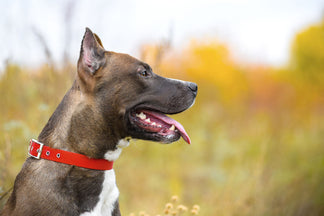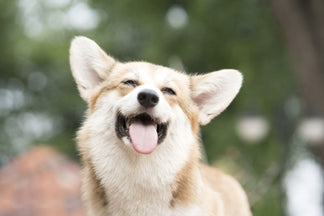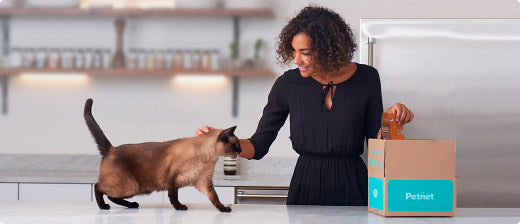The next featured breed in our Getting to Know your Dog Breed series is the Poodle. The Poodle is part of the Non-Sporting group of the AKC and ranks #7 in the AKC most popular breed list.
Life expectancy: Poodles life expectancy varies greatly – mostly due to variations in size of poodles. Range is from 10-18 years. Size: Poodles come in three different sizes, Toy (4-6 lbs), Miniature (10-15 lbs) and Standard (50-60 lbs).
Color: The most typical colors for poodles are black or white, but their coloring can range from apricot to silver/grey. They may also have colored markings of white, black or tan.
Origins: Poodles originated in Germany, not France like many folks think. They were bred and trained to be water retrievers for hunters. Their name is a derivation of the German word Pudeln which means “to splash in water”. They are related to the Irish Water Spaniel and Portuguese Water Dog. French and English breeders developed the different sizes of Poodles, resulting in the three recognized sizes.
Personality: Poodles have a reputation as being one of the smartest breeds, although the miniature tends to be shyer, quite vocal and possessive of their owner. The Standard size needs a fair amount of exercise due to its sporting dog roots, but they are easy to train and make great family dogs as well as good watchdogs.
The poodle is known for its fanciful grooming, with all those poufs and bouffant hairdos. Obviously, these grooming techniques are ornamental and really have nothing to do with the personality or health of the breed. They are purely for show, so if you like the breed, a nice “crew cut” works just fine.
Health Issues: Health issues prevalent in poodles include: hip dysplasia, progressive retinal atrophy (PRA), epilepsy, Addison's disease, thyroid issues, hypoglycemia, bloat, and collapsed trachea. These are found through all three sizes.
Fitness/energy level: Standard poodles like to have a job. They do have roots in retrieving and make good retrievers. They also love to be active with their families, so be sure and include them in your outings. Toy and Miniature sized Poodles are less active, but they still need daily exercise and mental challenges.
Native foods for the Poodle: The Poodles origins are Germany and their native foods might have been:
- Wild boar
- Pheasant
- Trout
Good foods to feed your Poodle:
Farmina – Natural & Delicious Wild Boar
Evanger’s – Pheasant and Brown Rics
Nulo - Grain-Free Senior Trout & Sweet Potato
Fun facts about the Poodle: Poodles do not shed in the same manner as other dogs and are therefore considered ‘hypoallergenic’. That’s a bit of mistaken belief as allergies are driven by the dog’s dander and other allergens they carry in their hair. It’s not the hair itself, but their hair carries the allergens and when they shed, you have all of these allergens in the air and around your house. Logically, if the dog sheds less, there is less dispersal of the allergy producing matter, and less suffering on the part of the owner.
Even though the Poodles origins are in Germany, they have been named the national dog of France.
The Poodle has racked up 9 Westminster Best in Show wins (4 for Standard, 3 for Miniature and 2 for Toy)
Sources:
http://www.realstandards.info/poodlehistory.htm
http://dogtime.com/dog-breeds/poodle#/slide/1
https://www.poodleclubofamerica.org/all-about-poodles/health-concerns
http://www.vetstreet.com/dogs/poodle




 General
General
 General
General
 General
General
